… so the sedevacantist argument must change.
by Rev. Anthony Cekada
SINCE JORGE MARIO BERGOGLIO’S election in March 2013, I’ve heard from more and more traditional Catholics who are starting to wonder whether sedevacantism might now be the only coherent way to explain the state of affairs in the post-Vatican II church. As I noted in a post late last year:
“After all, how can you reconcile the countless outrageous public statements that Bergoglio has made (no Catholic God, who am I to judge, doctrinal security is not possible, proselytism is nonsense, etc.) with the claim that he is indeed the true Successor of Peter? On the face of it, you can’t.”
Since then, Bergoglio’s doctrinal body count has steadily continued to rise with his whitewashing of the vile Koran in Evangelii Gaudium, his “brother bishop” address to a Protestant Pentecostal gathering, his attaboy for a cardinal’s speech proposing sacraments for the invalidly married, his canonization of the modernists John XXIII and John Paul II, and only two weeks ago, his personal phone call to an invalidly married woman, telling her she should receive the sacraments.
Instituting a general policy of giving sacraments to the invalidly married, in fact, is one of Bergoglio’s main goals. That is too much even for some Vatican officials, one of whom recently told Vatican commentator John Thavis: “If that happens, we’ve crossed the line into heresy.”
As it accumulates, all this evidence reinforces the conclusion from our November post last year:
“The only explanation that makes any sense alongside the Catholic (pre-V2) theology of the Church and the papacy is sedevacantism. Bergoglio is not a real pope, and the papal office is therefore objectively vacant (sede vacante = the Holy See is vacant). The man who deposited a beach ball on the altar of a Roman basilica and, more recently, donned a clown nose, is not, thank God, a real pope, despite the fact that he wanders around in a white cassock.”
Catholics who finally arrive at this conclusion will tell you that they feel a sense of relief. No longer do they have to square the duty of submission to the Roman Pontiff with the circle of Bergoglio’s three-ring circus.
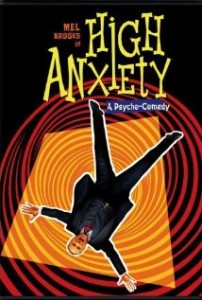 I. Anxiety Attacks over Sedevacantism
I. Anxiety Attacks over Sedevacantism
On the flip side, the increased interest in sedevacantism is causing considerable unease in the R&R wing of the traditionalist movement — the Society of St. Pius X (SSPX), The Remnant, Catholic Family News and many others. These traditionalists maintain that Catholics may “recognize” a pope and simultaneously “resist” him. For decades, the R&R folks have denounced sedevacantism as “schismatic,” a “false solution,” or an “exaggeration,” an assessment that seemed plausible to many trads because the heresies of JP2 and B16 were sometimes of a more subtle nature.
But with Bergoglio, the errors are up front and in your face. No Catholic God? Some Pentecostal Bible-banger is a brother bishop? Communion for the invalidly married? Even Aunt Helen would have trouble “recognizing” this guy as a true pope.
Faced with a burgeoning Bergoglio problem, R&R partisans stepped up their attacks against the sedevacantist thesis, especially as a lead-up to the canonization of John XXIII and JP2, which they naturally rejected.
So, beginning in January 2014, Bishop Richard Williamson posted a series of articles entitled Sedevacantist Anxiety, while his former SSPX colleagues in the U.S. promoted Sedevacantism: A Dead-End Error, a summary of links to past anti-sede articles. The Remnant ran “The Easy Way Out: Avoiding the Trap of Sedevacantism,” by contract law expert Brian McCall ( “easy way out,” I suppose, being a big preoccupation in contract law…), while Catholic Family News published Pope Francis, Archbishop Lefebvre and Sedevacantism by tax lawyer John Salza.
Catholic Family News returned to the topic in April with Robert Siscoe’s Bellarmine and Suarez on the Question of a Heretical Pope. Faithful to the level of scholarship one has by now come to expect from the R&R camp, Mr. Siscoe (1) attempted to trump what eventually became the unanimous teaching of academic theologians after Bellarmine on a heretical pope with a quote from a 19th-century American vernacular canon law manual, (2) recycled citations to works whose originals he had obviously never read (the cites are from Silveira’s 1971 Considerações), and (3) improperly cobbled together two passages from Bellarmine that occur four columns apart, in order to convey the false impression that Bellarmine requires two “warnings” before one can say that a heretical pope has fallen from office. ( For more on the game of hopscotch Mr. Siscoe played with the latter, see here)
Sooner or later, these and most anti-sede writings over the past thirty-five years all wend their way back to objections related to the loss of office by a heretical pope.
It occurred to me, therefore, that the time has come for sedevacantists to abandon this part of their argument, for the simple reason that it no longer applies in the Age of Bergoglio.
 II. Old Argument: Paul VI Lost It
II. Old Argument: Paul VI Lost It
The sedevacantist thesis arose from a need to explain how Paul VI, whom everyone at first recognized as a true pope when he was elected in 1963, could have used papal authority to promulgate doctrinal errors and evil laws.
The answer, as we now know, was to be found in a principle repeatedly laid down by pre-Vatican II theologians and canonists: A pope who became a public heretic automatically lost his office and papal authority. The principle applied on all fours to Paul VI, so one had a coherent explanation.
But what of his successors? Initially, many trads did not know exactly what to expect from John Paul I and John Paul II. (Believe it or not, the internet did not exist in those days, and information was hard to come by …) So sedevacantists tended to apply to both men the same theological principle they had previously applied to Paul VI — that is, the loss of office (authority) by a heretical pope who had validly obtained it.
In the 1990s, my own research into this question, first presented in Traditionalists, Infallibility and the Pope, turned up many quotes to support this principle. At the same time, I encountered another theological twist: Not only did a public heretic cease to be pope, but also a public heretic could not become pope in the first place.
III. New Argument: Bergoglio Just Didn’t Get It
It is to this theological principle (rather than “loss of office”) that sedevacantists must now appeal when discussing Bergoglio’s status. As a public heretic, Bergoglio could not have been validly elected pope.
The underlying reason is that public sin of heresy cuts one off from the Church. Commenting on Pius XII’s Encyclical Mystici Corporis, the theologian Van Noort observes:
“The same pontiff has explicitly pointed out that, unlike other sins, heresy, schism, and apostasy automatically sever a man from the Church. ‘For not every sin, however grave and enormous it be, is such as to sever a man automatically from the Body of the Church, as does schism or heresy or apostasy’. (¶30)” (Dogmatic Theology II: Christ’s Church, 153)
When it comes to the specific question of electing a man to be pope, theologians apply the principle this way: someone who is severed from the Church through public heresy cannot hold authority within the Church, still less, be its head on earth.
Moreover, canonists state that the invalidating prohibition against electing a heretic is a matter divine law. When treating the requirements for election to the papal office, numerous pre-Vatican II commentaries on the Code of Canon Law lay down just this principle. Thus:
MAROTO: “The Person Elected: … A) The validity of the election, as regards the person elected, depends only upon divine law — in other words, no other impediments except those laid down by divine law, render the election of a Roman Pontiff invalid… Therefore, for the valid election of a Roman Pontiff now it is required and suffices that the person elected be: … c) A member of the Church, for he who does not belong to the Church is considered incapable of possessing jurisdiction, especially ordinary jurisdiction, and cannot actually be the head of that Church. For this reason, infidels and the unbaptized can in no way be validly elected. So too, the divine law itself bars heretics and schismatics from the supreme Pontificate. For although divine law does not regard them as incapable of a type of participation in the Church’s jurisdiction (# 576, A [on supplied jurisdiction]), they must certainly be regarded as excluded from occupying the throne of the Apostolic See, which is the infallible teacher of the truth of the faith and the center of ecclesiastical unity.” (Institutiones I.C., 2:784)
WERNZ-VIDAL: “Those capable of being validly elected are all who are not prohibited by divine law or by an invalidating ecclesiastical law… Those who are barred as incapable of being validly elected are all women, children who have not reached the age of reason; also, those afflicted with habitual insanity, the unbaptized, heretics, schismatics…” (Jus Canonicum 1:415)
CORONATA: “III. Appointment of the office of the Primacy. 1. What is required by divine law for this appointment: … Also required for validity is that the appointment be of a member of the Church. Heretics and apostates (at least public ones) are therefore excluded.” (Institutiones 1:312).
BADIUS: “c) The law now in force for the election of the Roman Pontiff is reduced to these points… Barred as incapable of being validly elected are all women, children who have not reached the age of reason; also, those afflicted with habitual insanity, the unbaptized, heretics and schismatics…” (Institutiones, 160)
COCCHI: “For the validity of the election as regards the person elected, it suffices only that he not be barred from the office by divine law — that is, any male Christian, even a layman. The following are therefore excluded: women, those who lack the use of reason, infidels, and those who are at least public non-Catholics.” (Commentarium in C.J.C, 2:151)
SIPOS: “Any male who has the use of reason and who is a member of the Church may be elected. The following, therefore, are invalidly elected: women, children, those suffering from insanity, the unbaptized, heretics, schismatics.” (Enchiridion I.C., 153)
FERRERES: “Anyone who does not have an impediment of divine law can be validly elected… For this reason, only women, children lacking the use of reason, the insane, the unbaptized, heretics and schismatics are excluded.” (Institutiones Canonici, 1:407)
NAZ: “Anyone may be elected who is not barred from the office by divine law or ecclesiastical law. Women, children, the insane, the unbaptized, heretics and schismatics are barred.” (Traité de Droit Canonique, 1:365)
This general principle of divine law is even found in an ecclesiastical law promulgated by Pope Paul IV (1555–1559), who suspected that a cardinal who was a likely candidate for the papacy in the next conclave was in fact a secret heretic.
On 16 February 1559, therefore, Paul IV issued the Bull Cum ex Apostolatus Officio. The pontiff decreed that if ever it should ever appear that someone who was elected Roman Pontiff had beforehand “deviated from the Catholic faith or fallen into any heresy,” his election, even with the agreement and unanimous consent of all the cardinals would be “null, legally invalid and void.”
So the possibility that a conclave could elect a heretic is not some post-Vatican II sedevacantist fantasy. A real pope actually promulgated a law to prevent this possibility. And his decree laid down the same principle which the canonists quoted above said was divine law: a heretic cannot be validly elected pope.
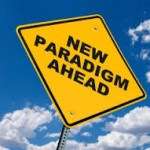 IV. How the Principle Changes the Discussion.
IV. How the Principle Changes the Discussion.
A. Clearing the Clutter. Appealing to the foregoing principle clears the clutter of irrelevant objections that the R&R camp raises against the loss of office principle. (For an idea of how many there are, see my article Sedevacantism and Mr. Ferrara’s Cardboard Pope — and yes, Mr. Ferrara is another lawyer…) No longer will one have to answer for the nth time R&R arguments like:
- The First See is judged by no one. (Response: “As a heretic, Bergoglio never truly obtained ‘the First See,’ so no one is ‘judging’ it.”)
- You need a Council to judge that a pope has fallen into heresy. (“As a heretic, Bergoglio was never pope in the first place.”)
- Due process rules dictate that a pope be given an opportunity to retract. (“As a heretic, Bergoglio was never pope in the first place.”)
- Cardinals must give a pope two canonical warnings before he can lose office. (“As a heretic, Bergoglio was never pope in the first place.”)
- Suarez and Cajetan support the idea that a pope does not lose his office until the Church somehow issues a judgement that he has. (“As a heretic, he never truly obtained the office in the first place.”)
- Honorius, John XXII and other popes “fell into heresy,” but were not considered to have lost their office. (“Even assuming they ‘fell into heresy,’ unlike Bergoglio, they were not heretics when elected.”)
- Pius XII’s conclave legislation allows a person to be validly elected pope even if he incurred excommunication or another impediment “of ecclesiastical law.” (“Heresy is not an impediment of ecclesiastical law but of divine law.”)
Poof! In the face of the principle laid down in the foregoing section, all these spurious objections disappear.
B. Focus on the SIN of Heresy. Hitherto, the R&R camp, following the arguments of Michael Davies, has insisted that no one, especially a pope, can be considered a heretic unless all the principles and procedural rules in the Code of Canon law pertaining to the crime of heresy are punctiliously observed. Thus, one must have official warnings, the accused must be given an opportunity to mount a defense, some sort of tribunal must be convened, the excusing causes canon law provides must all be carefully considered, etc.
But note: the canonists quoted in section III explicitly state that it is divine law that prevents a public heretic from being validly elected. This means that the sin of heresy suffices to prevent someone from becoming a true pope. There is no requirement that he first be convicted under ecclesiastical law of the canonical crime of heresy before the impediment applies.
In the case of heresy, warnings and the rest of the canonical rigmarole come into play only for the crime. These are not required as a condition for committing the sin of heresy against divine law. The canonist Michel draws the clear distinction for us:
“Pertinacity does not of necessity include long obstinacy by the heretic and warnings from the Church. A condition for the sin of heresy is one thing; a condition for the canonical crime of heresy, punishable by canon laws, is another.” (Michel, “Héresie,” in DTC 6:2222)
If meeting all the canonical criteria were a requirement, rest assured that Maroto, Wernz-Vidal, Coronata, Badius, Cocchi, Sipos and Ferreres would have explicitly told us so in the passages quoted above by qualifying the word “heretic” with the precise canonical terms employed for someone formally convicted of that canonical crime. Instead, they simply said heretic.
C. The “Pope-by-Default” Objections. Defeated by an unassailable general principle that leads to a logical conclusion, the R&R camp will no doubt continue to offer the usual “Pope-by-default” objections, implying these can somehow turn a heretic into a true pope by default. “The Church must have one, and who else is there?” Here are the common ones, together with responses, based on the teachings of various pre-Vatican II theologians:
- Vatican I taught there would be “perpetual successors” in the Primacy. Response: “Perpetual successors” means that the office of the Primacy is perpetual — was not limited to St. Peter alone, but “a power that will perpetually endure to the end of the world.” (Salaverri, de Ecclesia 1:385)
- A long vacancy would change the nature of the Church. The monarchical nature of the Church “does not prevent the Church, for a short time after the death of a pope, or even for many years, from remaining deprived of her head.Her monarchical form also remains intact in this state.…The perennial physical presence of the person of the head, however, is not so strictly necessary.” (Dorsch, de Ecclesia 2:196–7)
- How could we then get a true pope one day? The various theories are direct divine intervention, the material/formal thesis and an imperfect general council, the latter of which is taught by the theologian Cajetan. (de Comparatione 13, 742, 745)
- Sedevacantism destroys the visibility of the Church. There is nothing to prevent the Church from being reduced to a small number (“the Son of Man, when he cometh, shall he find, think you, faith on earth,” Lk 18:8). Moreover, the very purpose of visibility — the Church as the “column of truth to the nations” — is defeated by the heresies of the post-Vatican II body.
- The universal acceptance of the post-Conciliar popes confirms that they are true popes. Circular argument: Heretics, who are outside the Church, confirm as head of the Church another heretic who is outside the Church. Well, nice if you can manage it! And besides, sedevacantists reject the post-Vatican II popes. What are we? Chopped liver? So the acceptance is clearly not universal.
- It is impossible that so many Catholics could be wrong and only the sedevacantists right. “There seems to be no reason why a false Church might not become universal, even more universal than the true one, at least for a time.” (Berry, Church of Christ, 155)
Look closely at each of the objections again. None of them even pertain to — still less defeat — the underlying principle for the sede thesis: That a public heretic who lacks the faith of Peter cannot by divine law obtain the authority of Peter.
V. Just Apply the Principle to What Is Obvious
This principle makes for a very straightforward and easy-to-understand argument that Bergoglio is a false pope. All one need do is apply it to what is now clear as day. It should be obvious to anyone who has the Catholic faith that Bergoglio did not have it, and that when he was elected, was already a heretic, if not a total apostate
How else could a supposed cleric assert there is no Catholic God, doctrinal security exists no more, he who claims to have all the answers does not have God within him, proselytism is nonsense, atheists can go to heaven, etc. — declarations that blow away the meaning of the Creed, the nature of God, the possibility of arriving at doctrinal truths, the divine mission to convert others to those truths, and faith as a requirement for eternal salvation?
How else could a cleric assert that moral teachings (on the 6th and 9th commandments) are a disjointed multitude of doctrines that cannot be imposed insistently, one must not obsess about such matters (abortion, gay “marriage” and contraception), what is objectively adultery admits of a “pastoral solution,” who am I to judge, each one has his own vision of good and evil, spiritual interference in personal life is impossible, etc. — declarations that portray mortal sins as trifles, trivialize adultery, reprove moral judgments, enthrone the conscience as autonomous and supreme, and effectively renounce the right of the magisterium to tell the individual conscience anything?
Are we supposed to believe that Bergoglio suddenly began to profess these heresies during his walk from the Sistine Chapel to the Loggia of St. Peter’s on March 13, 2013?
Or should we not rather say that his statements thereafter merely confirm the modernist heresy Jorge Bergoglio already publicly professed in Argentina long before his election — his adherence to a system that rejects the possibility of religious truth and the objective moral law, that rejects proselytizing those who are atheists, that rejects “judging” such persons, that “cannot say what [God] is,” that classifies “as arrogant those theologies… that had the pretense of saying who He was,” that believes “there is another life because we have already begun to feel it,” that denies Church moral teaching on suicide, that speaks of adulterers as “those who live on the margin of what indissolubility and the sacrament of marriage require of them,” that says “the religious minister does not have the right to force anything on anyone’s private life,” and that insists, contradicting the teaching of all the Church Fathers and even St. Peter himself, that “the Jewish People can no longer be accused of killing God”? (See Bp. Donald Sanborn’s analysis of On Heaven and Earth, which Bergoglio co-authored in Argentina with a rabbi, in Most Holy Trinity Seminary Newsletter, May 2013)
And what of the heretical doctrines contained in the 1994–1997 Catechism of John Paul II, which Bergoglio was bound to adhere to and to implement as “a sure norm for teaching the faith,” “a sure and authentic reference text for teaching Catholic doctrine”?
Faced with this mountain of evidence, can we really still take seriously the objection of the R&R camp — Bp. Williamson, SSPX, The Remnant, Catholic Family News, countless bloggers, and moonlighting contract, tax and personal injury lawyers — that the cardinals who elected Jorge Mario Bergoglio and likewise adhere to the heresies of Vatican II and John Paul’s 1992 Catechism must give him two warnings, and then launch their own trial before we can dare say out loud that their companion in heresy is not a real pope?
The teachings of the canonists we have quoted give us the answer: We are not obliged to engage in such exercises in pretzel thinking and pseudo-Suarezian legal rigmarole before arriving at a conclusion.
A man who is not a Catholic — is a public heretic — cannot become a true pope and the rule is a matter of divine law. Bergoglio is a public heretic, so he cannot be the pope. It’s as easy as that. Bergoglio never got the papacy in the first place — so he’s got nothing to lose.
Bibliography
- Badii, C. Institutiones Iuris Canonici. Florence: Fiorentina 1921.
- Bellarmine, Robert. De Romano Pontifice. De Controversiis, Opera Omnia, t.1. Naples: Giuliano 1836.
- Berry, Sylvester. The Church of Christ: An Apologetic and Dogmatic Treatise. St. Louis: Herder 1941.
- Cajetan, T. de Vio. De Comparatione Aucoritatis Papae et Concilii. Rome: Angelicum 1936.
- Cocchi, G. Commentarium in Codicem Iuris Canonici. 4th ed. Turin: Marietti 1940.
- Coronata, M. Conte a. Institutiones Iuris Canonici. Rome: Marietti 1950.
- Dorsch, A. Institutiones Theologiae Fundamentalis. Innsbruck: Rauch 1928.
- Ferreres, J. Institutiones Canonici. Barcelona: Subirana 1920.
- Maroto, P. Institutiones I.C. 3rd ed. Rome 1921.
- Michel, A. “Héresie, Héretique,” in Dictionnaire de Théologie Catholique. Paris: Letouzey 1913–50.
- Naz, R. Traité de Droit Canonique. Paris: Letouzey 1946.
- Paul IV, Pope. Bull Cum ex Apostolatus Officio. 16 February 1559.
- Salaverri, J. Sacrae Theologiae Summa. 5th ed. Madrid: BAC 1962.
- Sipos, S. Enchiridion Iuris Canonici. 6th ed. Rome: Orbis Catholicus-Herder 1954.
- Van Noort, G. Dogmatic Theology II: Christ’s Church. Westminster: Newman 1957.
- Wernz, F.X., P. Vidal. Ius Canonicum. Rome: Gregorian 1943.
Support St. Gertrude the Great’s
Internet Apostolate!
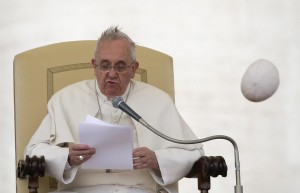
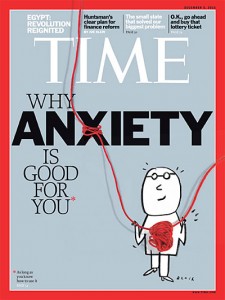
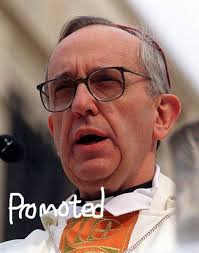

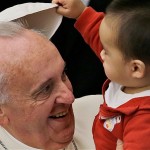
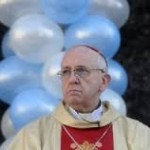
One Trackback/Pingback
[…] Bergoglio’s Got Nothing to Lose. Rev. Anthony Cekada. Theologians and canonists teach that a man who is a public heretic cannot become a true pope, and that the rule is a matter of divine law. Since Bergoglio is a public heretic, the conclusion is clear and self-evident: he cannot be a true pope. He was never a real pope in the first place. This principle also sweeps away a host of common objections to sedevacantism that one heard from traditionalists in the SSPX and R&R camps in the past. (Quidlibet, May 2014) […]